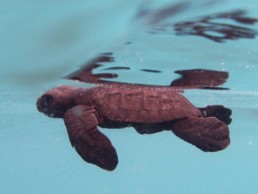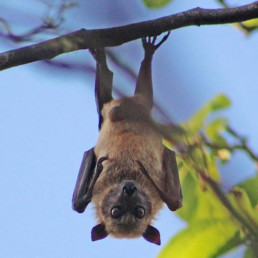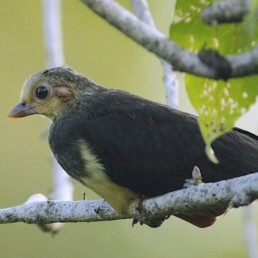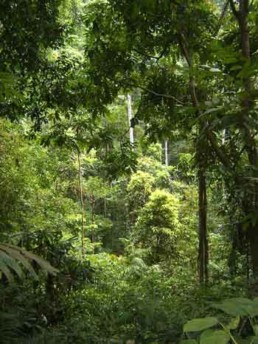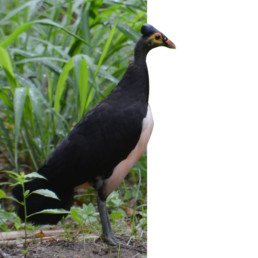Location
Sulawesi, Indonesia (mainly Tompotika Peninsula)
Goal
To secure a future for the Endangered Maleo bird and other imperilled wildlife, notably sea turtles, fruit bats, and the Anoa and Babirusa—two of Sulawesi’s most threatened mammals—in the Tompotika area and beyond.
Project Field Partner
The Alliance for Tompotika Conservation (AlTo), is a registered non-profit organization in Indonesia and the USA. The key personnel for this program are AlTo Director Marcy Summers along with AlTo Conservation Officers and villagers.
Size of Area Involved
250,000 hectares (2,500 km2)
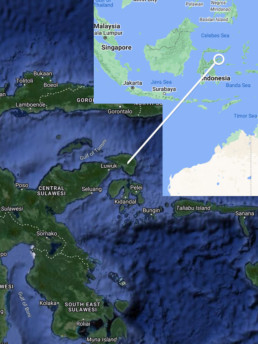
Maps data © 2024 Google
Compared to its neighbours, for example Borneo and Sumatra, which both host charismatic megafauna like orangutans, tigers, and elephants, Sulawesi gets very little research or conservation attention, but the minute you look closely you realize it’s a conservation treasure, with nearly half its vertebrate species endemic.
— Marcy Summers, Director, AlTo
The Tompotika area, where AlTo’s efforts are focused, represents a centre of endemism within the global “biodiversity hotspot” that is Sulawesi. Recent surveys have identified at least 9 new animal species known only from this area. Tompotika boasts an excellent representation of Sulawesi’s characteristic natural habitats, including montane moist forests, savannah, wetlands, mangroves, sandy beaches, coral reefs, and seagrass beds. Importantly, this project has resulted in the only population of the Critically Endangered Maleo bird that is known to be increasing.
Sulawesi is a worldwide conservation priority. In a study of how scarce resources can be optimally allocated for conservation, Sulawesi emerged as the highest-ranked among the neighbouring conservation priority regions – Sumatra, Borneo, Java/Bali, and southern peninsular Malaysia.
The Tompotika region, rich with karst cave formations providing roosting habitat for various bats, is a hotspot of bat diversity within Sulawesi. Fruit bats play a critical role in maintaining the health of Tompotika’s native tropical forests by pollinating trees, spreading seeds that help forests regrow, and by providing high-quality fertilizer. Many tropical fruit and nut trees, such as mango, cashew, wild banana, avocado, and durian, to name but a few, rely on bats for pollination to produce fruit. In addition, insectivorous bats control populations of insect pests, such as the mosquitos that spread malaria or the grasshoppers that destroy rice crops.
Threats:
Both Maleos and sea turtles have undergone population declines from rampant harvesting of their eggs by local people. Bat populations, which play a vital role in maintaining the health of Tompotika’s native forests, and forest-dwelling anoas and babirusas have also declined under heavy hunting pressure fueled by the demand of expanding bushmeat markets in North Sulawesi. Tompotika’s native forests face threats of illegal logging, conversion for oil palm plantations, slash and burn agriculture, and mining.
Maleo nesting site. Video by Anne Lambert
AlTo is focused on the Tompotika Forest Preserve, a 10,000-hectare protected rainforest area surrounding Mount Tompotika, at the heart of the Tompotika peninsula. This aim is to protect this area from mining, illegal logging, conversion for oil palm plantations, slash and burn agriculture, and other threats, while working with local people to encourage forest-friendly lifestyles and livelihoods, such as organic farming and wild silk-moth rearing, in areas adjacent to the Preserve.
Interactive conservation education programs reach about 1500 school children each month. Focusing on one topic at a time, the programs include presentations, games, printed materials, and take-home items. Thanks to these efforts, most of Tompotika’s 20,000+ school children have now had at least an introduction to local conservation issues.
AlTo staff meet regularly with village leaders and community members to raise awareness about local and regional environmental issues and their efforts to address them. Several successful village-wide events have been organized, including beach cleanups to remove turtle nesting hazards
The Maleo: a conservation success story
Guard teams comprising AlTo staff and local villagers have been patrolling the maleo’s communal nesting ground near the village of Taima round the clock to prevent egg collecting and other human-caused disturbances such as logging or livestock pasturing. These efforts have saved thousands of eggs and almost completely eliminated poaching. The Taima nesting ground has become the only site in the world where the maleo population is on the rise: the number of adult maleos returning to nest here has increased from 1312 in 2006 to over 4000 at present. This clearly represents a significant proportion of the global maleo population, estimated at 8,000-14,000 mature birds. AlTo’s Taima site now host far more maleos than any other maleo nesting ground throughout the species range. It is the only one where large numbers of eggs are protected in their natural state and chicks disperse without hatchery intervention.
Recognizing the importance of AlTo’s maleo protection efforts at Taima, in 2014 the Indonesian government officially declared the Taima nesting ground an “essential ecosystem” (this designation has only been awarded to 7 sites nationwide). This will strengthen formal protection for maleos.
In 2014, they began protecting a recently discovered nesting site (Kaumosongi; near Teku/Toweer villages) that is connected to the Taima site by an 18-km stretch of intact forest that represents non-breeding habitat for the maleo. AlTo works with villagers and government to preserve forest adjacent each nesting ground and between them and to address the human-related threats within this corridor (e.g., hunting with dogs). This complex of nesting grounds and high-quality non-breeding habitat represents the first maleo “stronghold” ever effectively protected.
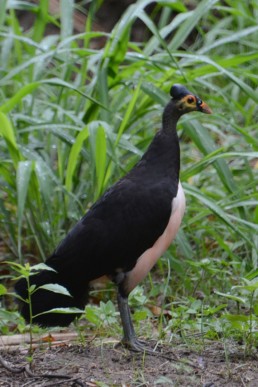
Maleo (Macrocephalon maleo) at Muara Pusian, North Sulawesi photo by Ariefrahman

